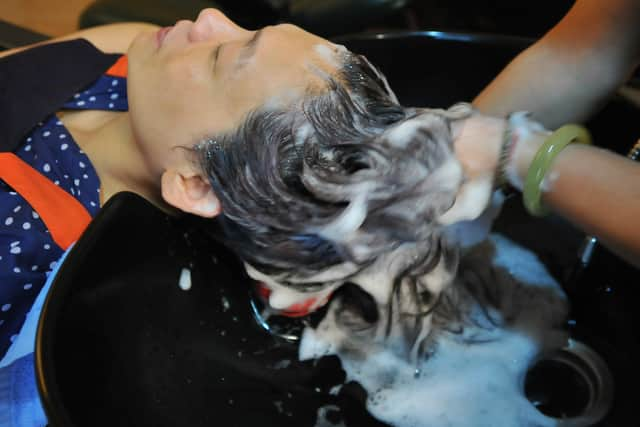How often should you wash your hair? Viral TikTok trend explained - is it bad to wash your hair everyday
and live on Freeview channel 276
Social media users have been extolling the virtues of waiting more than two weeks to wash your hair - but how good is it actually for you?
The “dirty hair” trend, as it is known online, has been gaining popularity on TikTik. In fact videos associated with the hashtag have racked up 169.1 million views. The growing popularity has led people to question how effective waiting to wash your hair is. Or how often you really should wash yourhair.
Advertisement
Hide AdAdvertisement
Hide AdHaircare experts have delivered their verdict. Here is all you need to know...
What is the dirty hair TikTok trend?
In parts of TikTok, some creators have been advocating that you should forgo using shampoo and instead embrace your hair’s natural oil. In this corner of the app, some users are leaving it a seriously long time - 17 days in fact - between washes, instead focusing on styling unwashed manes, with hashtags such as ‘dirty hair’ racking up 169.1 million views and ‘dirty hairstyle’ getting 19.7 million.
How often should you wash your hair?
Tom Smith, stylist and hair trend forecaster, said: “Some people believe longer gaps between washes can make their hair healthier. I don’t believe there are any scientific links between allowing your hair or scalp to get dirtier, but I think people notice this as less washing often means less heat styling and wear and tear, which can improve the long-term quality of hair.”
However he says that what is important is keeping the scalp clean. Tom explains: “While the hair itself doesn’t need to be washed every day, the scalp should be respected, like the rest of your skin, and washing it daily, assuming the use of compatible products, should never cause an issue.”
Advertisement
Hide AdAdvertisement
Hide AdAsked how often you should wash your hair, Tom describes it as a personal choice. He added: “Every hair type varies, but daily washing is totally fine for those with uncoloured hair, who keep heat styling to a minimum. Those with heavily colour-processed hair, and who prefer lots of heat styling, can help locks stay healthier for longer by reducing the frequency of washes.”


So washing your hair isn’t going to damage it?
Inanch Emir, stylist to the stars, describes the claims as an “old wives tale”. She adds: “It is basically a load of rubbish, it’s an old wives’ tale to avoid washing your hair every day. It isn’t damaging, it is what we do after that damages hair. Washing regularly and air drying will look after the scalp and help hair to grow better.
“If your hair is getting polluted regularly, the pores on your scalp will be clogged up. Not washing your hair, for, say, 17 days, will allow layers of dirt to sit on your skin and scalp. This makes it thinner and more brittle, meaning it gets damaged more easily.” In fact, contrary to popular belief, “You cannot ‘train’ your hair to clean itself – this is a myth”, says Tom.
Should I use dry shampoo?
Inanch explains: “Dry shampoo was created for those not wanting to wash hair every day, it should not replace shampooing. It is meant to extend hair washing by a day.”
Advertisement
Hide AdAdvertisement
Hide AdTom adds: “For some, daily shampooing will be the only way to keep itchiness or flakiness at bay, while others can happily go a week without shampooing. The amount you workout and perspire, as well as the amount of product you use, will determine how often you need to wash your hair. While dry shampoo can achieve a cosmetically ‘cleaner’ result, a proper shampoo and condition is essential to keep your scalp and follicles happy.”
Comment Guidelines
National World encourages reader discussion on our stories. User feedback, insights and back-and-forth exchanges add a rich layer of context to reporting. Please review our Community Guidelines before commenting.